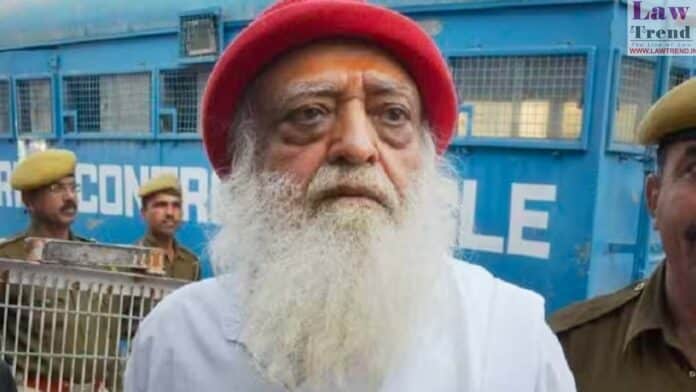The Rajasthan High Court on Monday granted bail to self-styled godman Asaram in a case pertaining to furnishing a forged RTI reply in the Supreme Court in support of his bail plea.
Granting bail to Asaram, Justice Kuldeep Mathur of the high court’s Jodhpur bench observed that no direct role was attributed to the petitioner in the creation of the forged RTI reply submitted before the apex court and the offences alleged to have been committed by him are triable by a magistrate.
Asaram is already serving a life sentence since 2018, following his conviction in a case of sexual exploitation of a minor student of his “gurukul”.

The court also took into account that co-accused Ravirai Marwah has already been granted bail and the trial is likely to go on for long.
The case was lodged against Asaram after Marwah, one of his sympathisers, submitted the forged RTI reply pertaining to the self-styled godman’s health condition in the Supreme Court for the purpose of his bail in 2016.
The document was allegedly obtained from a Jodhpur jail through an application filed under the the Right to Information (RTI) Act by one Ganesh Kumar and was provided to Marwah, who subsequently handed it to Asaram’s lawyer in the apex court.
On finding that the document was forged following an objection by the state government, the Supreme Court had directed police to file a case against Asaram and Marwah despite the self-styled godman tendering an apology in the court.
Asaram’s counsel Gokulesh Bohra said police had arrested Asaram in the case from the Jodhpur jail on a production warrant and filed a chargesheet against the two.
“While Marwah has already been granted bail, we also argued in the court that Asaram has already been in judicial custody in another criminal case for the last 10 years and he is not allowed to meet devotees and other visitors in the absence of the jail authorities,” Bohra said.
He further told the court that the petitioner could not have had any opportunity to prepare a fake document and was only a signatory to the vakalatnama filed before the Supreme Court for bail.







